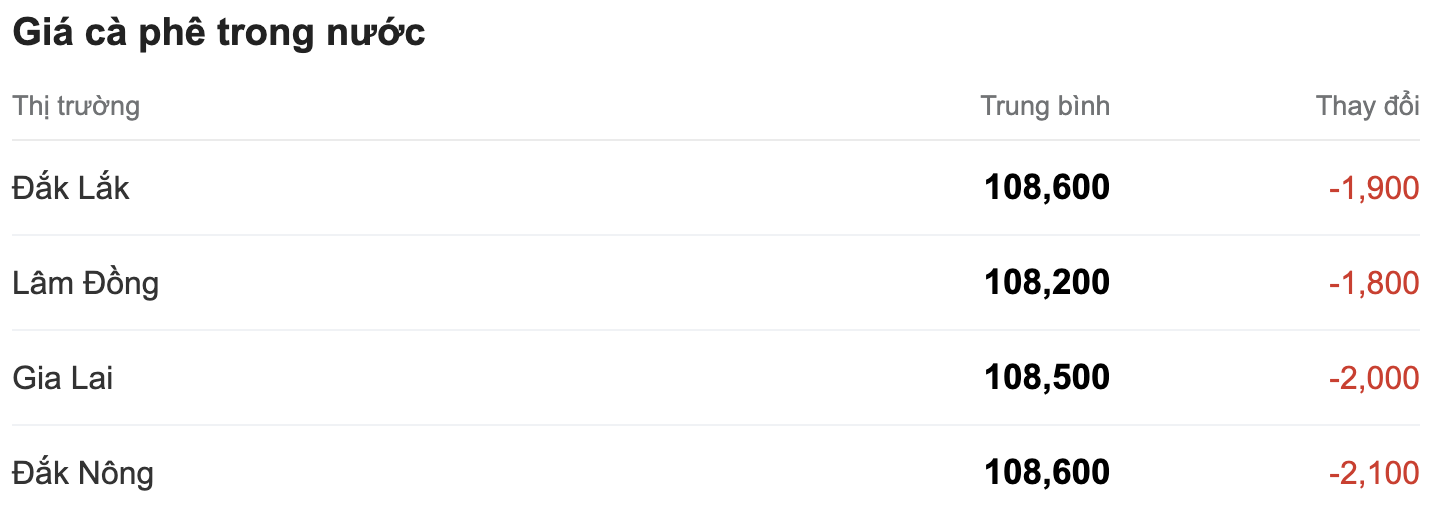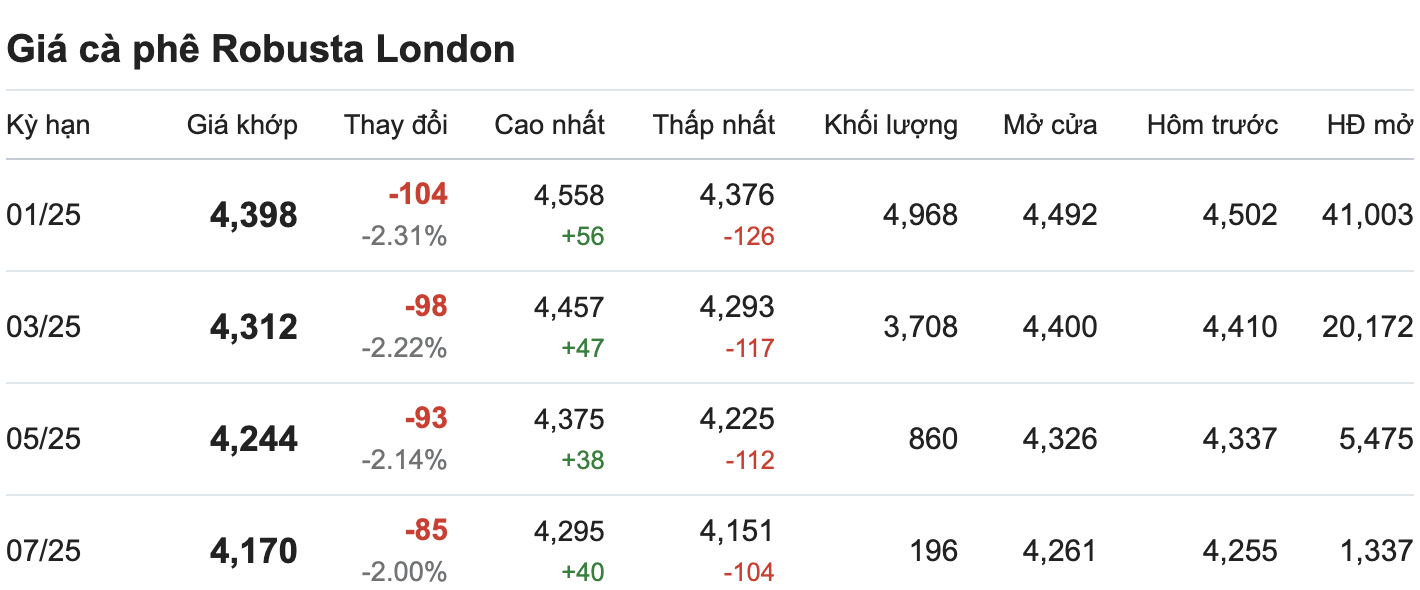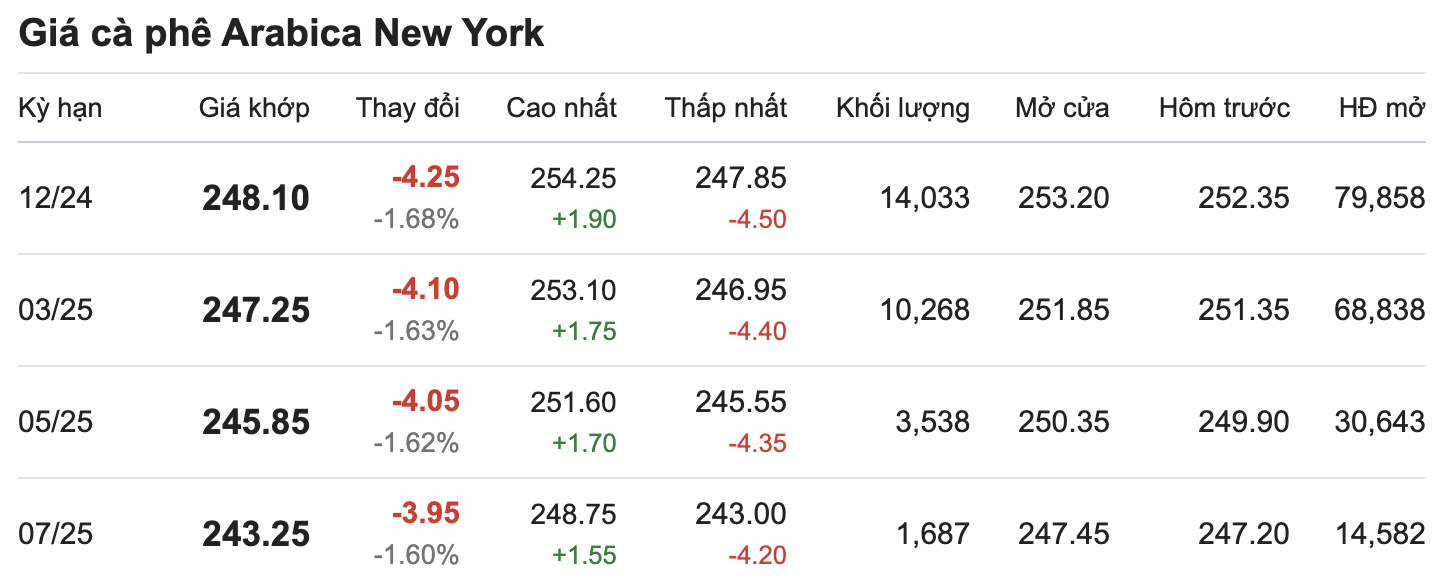As of 1pm today (October 30), the domestic and international coffee markets have reversed sharply, with an average decrease of VND2,000/kg, causing prices to fluctuate between VND108,200 - VND108,600/kg. The average coffee purchase price in the Central Highlands provinces is VND108,600/kg.
Gia Lai province today has the smallest decrease, down 1,900 VND/kg, currently purchasing at 108,600 VND/kg.
In the same direction, Lam Dong is also the province with the lowest coffee purchasing price in the Central Highlands. Compared to the closing price yesterday, the coffee price in this region is currently at 108,200 VND/kg, down 1,800 VND/kg.
Notably, Dak Nong province recorded the deepest decline in the past 2 months, down 2,100 VND/kg, currently standing at 108,600 VND/kg.
Thus, after a day of improvement, domestic coffee prices continued to decline, causing the average price in the middle of the week to fall below 110,000 VND/kg.

On the London and New York exchanges, the coffee market was covered in red. At the end of the most recent trading session, the price of Robusta coffee in London was far from the peak of 4,500 USD/ton. The January 2025 delivery period decreased by more than 2% (equivalent to 104 USD/ton), reaching 4,398 USD/ton. In the same direction, the March 2025 delivery period decreased by 2.2% (equivalent to 98 USD/ton), listed at 4,312 USD/ton.

In the New York Arabica coffee market, the December 2024 contract fell sharply by 4.25 cents/lb, reaching 248.10 cents/lb. The March 2025 contract fell by 0.15 cents/lb compared to yesterday's closing price, currently standing at 247.25 cents/lb.

After a day of strong increases to a new level, world coffee prices quickly returned to a downward trend. The latest reason for the market reversal was the high and continuing strength of the USD. After storm No. 6, concerns about supply eased as the impact on Vietnam's coffee growing areas was negligible.
In addition, the depreciation of the Brazilian Real against the USD is another factor that is directly affecting the market, encouraging Brazilian producers to increase sales, creating downward pressure on prices.
The delay in the implementation of the EUDR has also had a strong impact on coffee prices in the market. The EUDR has been extended for another year, so all coffee sources are more cautious than ever.











